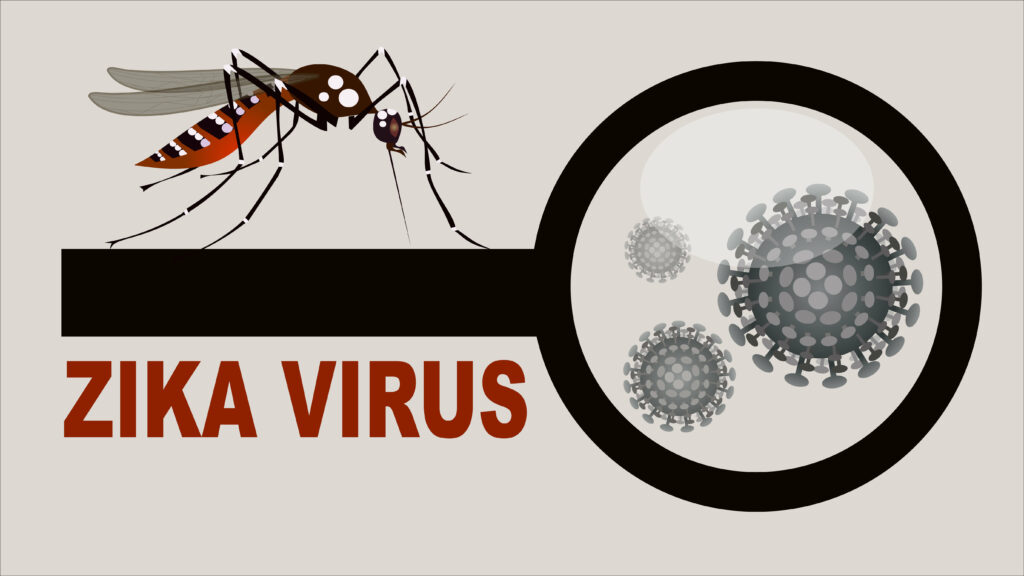
Overview
Zika virus is mostly transmitted to humans by mosquito bites, especially in tropical and subtropical regions. When infected with this virus, the vast majority of people show no symptoms. Yet, some individuals have reported experiencing slight fever, rash, and muscle aches.
Although most persons infected with the Zika virus won’t have any symptoms, a small percentage of those infected will develop a serious neurological condition like Guillain-Barré syndrome. The Zika virus causes an illness known as Zika, Zika fever, or Zika virus disease.
To combat Zika, scientists are developing a vaccine. Currently, reducing mosquito habitats and protecting yourself from mosquito bites are your best bets for staying healthy.
Key Facts
- Zika virus is transmitted by the mosquito species Aedes Aegypti, which is not found in the United Kingdom.
- Zika virus infection has been linked to several pregnancy-related problems, including premature delivery and spontaneous abortion. Microcephaly and associated congenital disabilities caused by Zika virus infection during pregnancy are collectively referred to as congenital Zika syndrome.
- In both adults and children, Zika virus infection is associated with an increased risk of neurologic sequelae, such as Guillain-Barré syndrome, neuropathy, and myelitis.
- The virus can be transmitted by sexual contact with an infected person, but only very infrequently.
- The Zika virus is present in some areas of South and Central America, the Caribbean, the Pacific islands, Africa, and Asia.
- Zika virus is a type of flavivirus that was first discovered in Uganda’s Zika woodland in 1947.
- Only about one-fifth of people infected with Zika will experience symptoms.
- With this infection, hospitalization is rare.
- Neither a vaccine nor an antiviral treatment is available for Zika virus infection at this time.
Symptoms and Diagnosis
Symptoms
Four out of five people who contract the Zika virus will show no external symptoms. In most cases, it takes between two and fourteen days after being bitten by an infected mosquito for symptoms to appear. The average duration of symptoms is one week, after which most patients are completely relieved.
The Zika virus typically elicits the following symptoms:
- Rash and mild fever
- Discomfort in the joints, most often in the fingers or toes
- Redness of eyes (conjunctivitis)
- Muscle aches
- Headache
- Irritation of the eyes
- Weakness or a distressing sensation in one’s body
- Abdominal pains
Diagnosis
You might expect questions regarding both your health and your recent travels from your doctor. The physician may inquire about the dates of any overseas travel, the places you and your sexual partner visited, and whether or not you came in contact with a mosquito.
Your doctor may suggest a blood or urine test if they think you may have contracted the Zika virus. Other mosquito-borne diseases can also be tested with blood or urine samples.
Additionally, your healthcare provider may advise you to undergo one of the following if you are expectant and at risk of Zika virus infection:
- Examination of the fetus’s brain with ultrasound equipment for potential defects
- Testing for Zika through amniocentesis, a procedure where a hollow needle is inserted into the uterus to collect an amniotic fluid sample.
Causes and Preventions
Causes
Infected mosquitoes are the primary vector for Zika virus transmission. There are two mosquito species (Aedes aegypti and Aedes albopictus, both belonging to the genus Aedes, known to carry the virus and are widespread in most parts of the world.
Mosquitoes can catch the Zika virus by biting someone who already has it. Afterwards, the virus spreads from one person to another via mosquito bites.
Zika virus can also be passed from mother to child during pregnancy.
Sexual interaction is another mode of transmission of the virus. Humans can also contract the virus when receiving donated blood or organs.
Prevention
Currently, the Zika virus cannot be prevented by vaccination. However, some measures may lessen your vulnerability to the virus.
These precautions may reduce your chances of contracting the Zika virus, even if you or your spouse are pregnant or trying to conceive:
- Minimize breeding grounds for mosquitoes: The Zika virus is spread by mosquitoes, and these insects typically breed in stagnant water that has gathered in household items like pet bowls, flower pots, and old tires. To reduce mosquito populations, it is recommended that stagnant water be removed at least once a week.
- Put on protective clothing: Wear long sleeves, pants, socks, and shoes while visiting or living in mosquito-infested areas.
- Use of Insect repellents and mosquito nets: Permethrin can be sprayed on textiles, footwear, outdoor equipment, and bed nets to prevent mosquito bites. The chemical is also incorporated into several commercially available garments. When applying repellent to your skin, look for products that contain DEET, picaridin, or other active ingredients approved by environmental protection agencies for use against mosquitoes. When used as indicated, these repellents are safe and effective, even for pregnant and lactating women.
- Perform sexual activities under safe conditions: Pregnant women should either avoid sexual activity with their partners who live in or have visited an area with an active Zika virus outbreak or use condoms during sex.
- Spend time carefully preparing your trip: Pregnant women are strongly discouraged from visiting locations experiencing a Zika virus outbreak.
- Stay in a cool, well-screened place: Aedes mosquitoes are most active between the hours of dawn and dusk, although they can also bite at other times of the day. A mosquito net may be worth the investment if you must sleep outside.
- Blood should be screened for the Zika virus before transfusion.
Typical Treatments
Zika virus infection currently has no curative medical treatment.
According to the Mayo Clinic, the following measures can help relieve the symptoms:
- Ensure you get a lot of sleep.
- Always take in enough fluids to avoid dehydration.
- Acetaminophen, included in Tylenol and other over-the-counter pain relievers, may be useful for reducing inflammation and fever.
Conclusion
Symptoms of the Zika virus are rarely seen, but the condition can cause severe harm to an unborn child. Hence, you should stay away from unprotected sex, avoid mosquito bites, and get rid of mosquito habitats.
MOST COMMON






